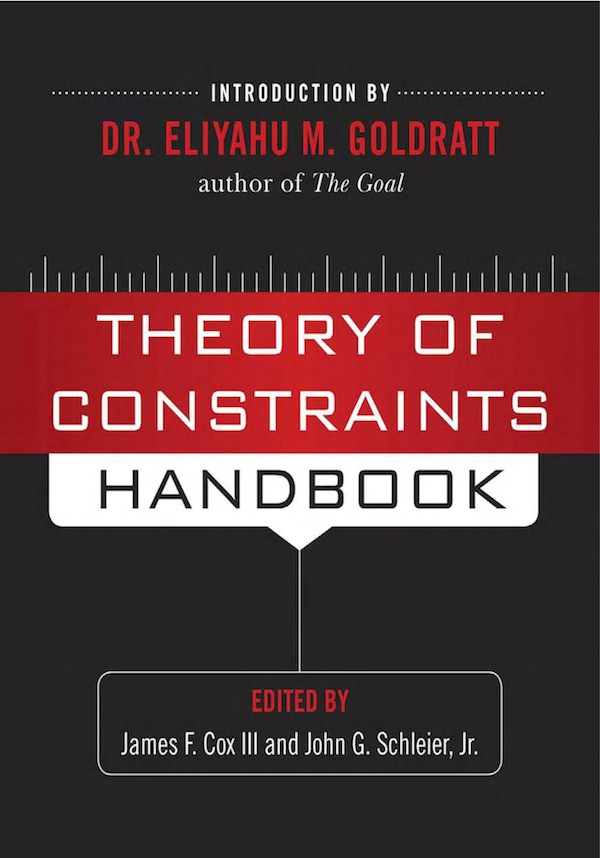A Critical Chain Project Management Primer (Chapter 3 of the Theory of Constraints Handbook)
Janice Cerveny and Charlene Spoede BuddInfo
Level of TOC knowledge acquired:
Introductory and IntermediateLength:
35 pagesDesigned for:
Consultants, Implementers and Project ManagersTopics:
Project ManagementApplication:
Buffer Management and Critical ChainLanguage:
EnglishFormat:
DownloadShare
Recommend
This is an individual chapter of Theory of Constraints Handbook. Designed for those fairly new to Critical Chain concepts, this chapter compares traditional (critical path) project management with the Critical Chain approach.
The rationale for the Critical Chain approach is presented, along with its key elements. A seven-step process for scheduling a complete project is demonstrated with a simple example, including where, in what order and in what size, buffers should be established. To the extent possible, resource contention is eliminated as a project is scheduled.
Communications then play an essential role in insuring that Critical Chain tasks are not delayed. Innovative work policies minimize ineffective and inefficient multi-tasking. In a multiproject environment, project priorities are established and entry of new projects into the system are appropriately sequenced.
The chapter also addresses project operational control through buffer management, project budgeting, reporting project progress externally, and how Critical Chain might be implemented using a Critical Chain implementation empowerment model.
Content:
- Introduction
- Key Elements of Critical Chain
- Scheduling a Single Project
- Critical Chain Scheduling
- Scheduling Projects in Multi-Project Environments
- Project Control: The Power of Buffer Management
- Project Budgeting
- Project Reporting
- Causing the Change: Behavioral Issues, Management Tactics, and Implementation
Comprehensive coverage of the Theory of Constraints
Complete Table of contents of the Theory of Constraints Handbook
- I: What is TOC?
- II: Critical Chain Project Management
- III: DBR, Buffer Management, and Distribution
- IV: Performance Measures
- V: Strategy, Marketing, and Sales
- VI: Thinking Processes
- VII: TOC in Services
- VIII: TOC in Complex Environments
- Theory of Constraints in Complex Organizations
- Applications of Strategy and Tactics Trees in Organizations
- Complex Environments
- Combining Lean, Six Sigma, and the Theory of Constraints to Achieve Breakthrough Performance
- Using TOC in Complex Systems
- Theory of Constraints for Personal Productivity/Dilemmas
- IX: Summary
About the Authors:
James F. Cox III, Ph.D, CFPIM, CIRM, holds TOCICO certifications in all disciplines. He is a Jonah's Jonah, Professor Emeritus, and was the Robert O. Arnold Professor of Business in the Terry College of Business at the University of Georgia. Dr. Cox has written three books on TOC.
John Schleier holds TOCICO certifications in all disciplines. He was President and Chief Operating Officer of the Mortgage Services Division of Alltel, Inc., Executive Vice President of Computer Power, Inc., and Director of Office Systems and Data Delivery for IBM.







































